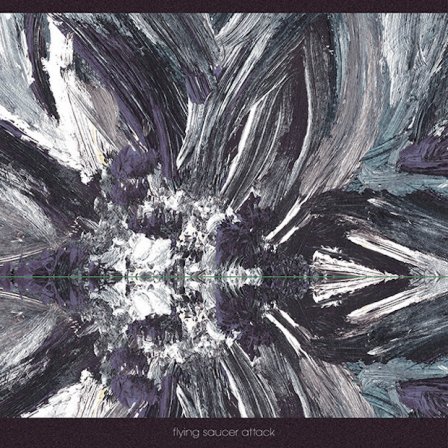“Guitar groups are on their way out, Mr. Epstein.”
O_O
-_-
The argument for and against the death of the guitar is an old, tired one. The guitar is an instrument, a tool, and as such, it’ll probably be used for a long time to come. Consider the obvious fact that the piano didn’t die out when guitar/bass/drums combos became the popular style. The guitar has been prepared by Keith Rowe, mangled by Glenn Branca, and tapped on by Eddie Van Halen; Kevin Shields used it to make sound “glide,” Christian Fennesz blasted it through a laptop, Liz Harris made it mimic a Wurlizter, and Christian Marclay dragged it behind a moving truck. If nothing else, the guitar is a controller and a tone generator. It doesn’t outgrow its usefulness in the same way a hammer doesn’t outgrow its usefulness. The guitar is so ubiquitous and still so standard that sometimes you don’t realize how powerful it can still be until you’re being beaten in the skull with it. And every once in a while, you’ll hear guitars that don’t even need to do anything special to grab your attention, something that gets the synapses firing by just listening quietly and radiating.
Flying Saucer Attack albums generally have that effect on me. It’s been 15 years since the last official Flying Saucer Attack full-length, thirteen if you count the PA Blues CD-R on VHF or David Pearce’s Clear Horizon album with Jessica Bailiff (which sounds, for all intents and purposes, like an FSA album and a direct sequel to Further). Earlier this year, while on another listening binge with Pearce’s music, I inquired to some other FSA fanatics as to whether anyone had heard of his involvement in any music since then. No one had. In the age of infinite information, it’s surprising that there has been absolutely no news of the man since 2003. Not that it matters, as Flying Saucer Attack’s music always sounded unmoored by time — anchorless and drifting eternally. There was a feature in The Wire not too long ago on “rural psychedelia” — a phrase that appears on the insert that came with original copies of the first FSA album — attempting to anthologize the Bristol scene from which FSA sprang. Maybe there’s an audience coming to Pearce’s music for the first time or relatively recently, one unaware of Movietone, Crescent, Third Eye Foundation, and Amp or the fact that FSA once shared a Glastonbury bill with Smashing Pumpkins at the height of that band’s mid-90s popularity.
One thing hasn’t changed in the last decade plus for Pearce, and it’s that he’s still releasing music in a cultural landscape diametrically opposed to the way he works. Instrumentals 2015 doesn’t offer any kind of in-road, gimmick, key note, single, or any other concession to people who aren’t willing to meet it all the way. It is an obelisk. The music is fearlessly patient in a time when musicians will do and say just about anything to remain in the spotlight for a few more minutes. On this collection, Pearce slowly unfurls a tapestry of sound like acrid clouds or a sheet rain blotting out the sun. But unlike other artists who could be viewed along similar lines, Sunn O))) for example, there are no robes and smoke or guest artists or concepts, and the music is of lower fidelity home recordings (an FSA hallmark) with a sound generally lighter in both mood and texture. Even the tracks are generically named, so the listener has little to hold onto.
The music on Instrumentals 2015 sounds like it could be an amalgamation of different avant-guitar styles made popular over the last decade. It has some drone work that wouldn’t have sounded out of place if it had appeared alongside Double Leopards’ A Hole Is True or Halve Maen. One or two of the tracks screech with the intensity of post-Tribulation Skullflower. Several sections echo the kind of slow twang that Earth has been mining since 2005, a style not distant from Neil Young’s Dead Man soundtrack or the work of New Zealand guitarist Roy Montgomery. For my money, Grouper is the closest thing to a modern descendant of FSA. Liz Harris’s work has a similar drone-to-song ratio, both favor releasing dronier material outside of major album statements (Instrumentals 2015 is to FSA as Violet Replacement is to Grouper, etc.), both have a Luddite-esque lack of a real internet presence, and both are quiet outsiders working within the folk idiom. But it’s not as if Pearce is borrowing from these things. He’s pretty much returning to territory that he had originally beat these artists to, territory that only nominally gained more attention with the rise of both noise and outsider folk as more accepted modalities in the mid 00s. As such, even with the complete lack of song-oriented material, Instrumentals 2015 serves as an interesting career overview and a welcome return of someone who I had begun to believe had slipped entirely into the light of time.

